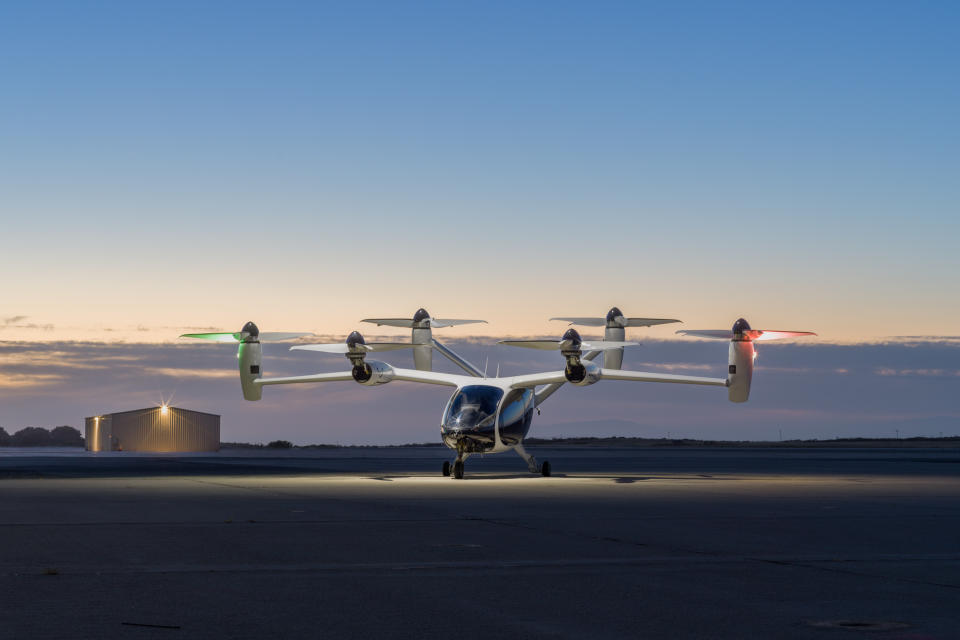Joby Aviation's contract with US Air Force expands to include Marines

The United States Department of Defense is deepening its relationship with electric vertical take-off and landing (eVTOL) aircraft company Joby Aviation.
Joby said Wednesday that it is expanding its existing contract with the U.S. Air Force’s Agility Prime program, which is an initiative the Air Force launched in April 2020 to test, experiment and generally accelerate the development of eVTOL for cross commercial and military use.
Joby’s DoD contract will now include defense partnerships with the U.S. Marine Corps, which will test Joby’s eVTOLs in non-combat use cases like resupply, relocation of personnel and emergency medical response, according to Joby executive chairman Paul Sciarra.
The Army, Navy, Air Force and Marine Corps have all identified eVTOL as a critical area of interest for a variety of reasons. EVTOLs promise a lower noise profile -- all the better for stealth operations -- as well as a lower cost to operate and potentially more flexibility for missions and operations.
“There’s also a push within the DoD that may be surprising to many people to green the overall footprint of their operations, and replacing jet fuel-burning vehicles with electric aircraft can be a piece of that puzzle,” Sciarra told TechCrunch.
But perhaps most importantly is the DoD’s mission to be at the forefront of the next generation of aviation technology and have a say in how that technology develops -- particularly as eVTOL becomes yet another competitive geo-political frontier for the U.S. to explore.
In fact, just last week, the White House held a summit on Advanced Air Mobility (AAM). Among other topics, leaders in the space touched on the Advanced Air Mobility (AAM) Coordination and Leadership Act, which is currently making its way through Congress. The bill directs the Department of Transportation to establish an AAM interagency working group to plan and coordinate an ecosystem in the U.S.
From Joby’s POV, the expansion brings the total contract’s potential value to more than $75 million. While that money isn’t on Joby’s balance sheets just yet, the partnership does bring with it access to testing facilities, a foot in the door with government partners and some help covering the costs of advanced testing and development.
“That will lead in time, we both hope, to more substantial deployments of real aircraft in the field with the military,” said Sciarra. “But this is a sort of building block to make sure that [the DoD understands] what [eVTOL] can do and how they would best use it.”
Sciarra also mentioned the DoD has a different certification process than the Federal Aviation Administration (FAA), which might give Joby an opportunity to get vehicles into service more quickly on the government side as opposed to the consumer side.
In May, Joby received the necessary certification from the FAA to begin on-demand commercial air taxi operations.
Joby is reporting its second-quarter earnings results Thursday. Analysts expect the pre-revenue company’s earnings per share to come in at -$0.15, which would be a 36% decrease from the previous quarter.

 Yahoo Movies
Yahoo Movies 